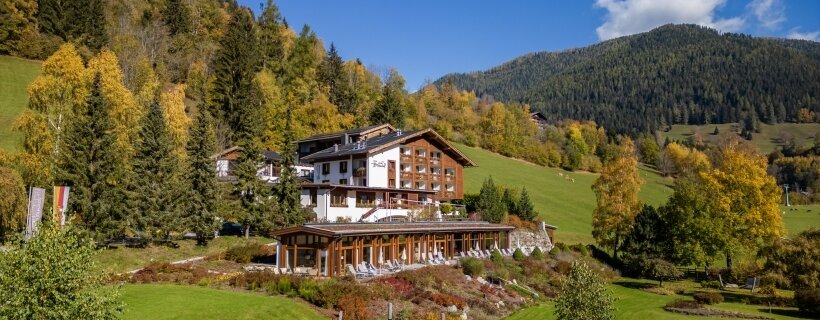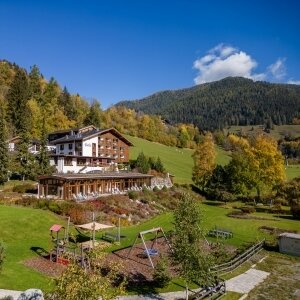Practical tips and advice for hiking excursions
We often hear of people who expose themselves to unnecessary dangers in the mountains – by wearing inappropriate footwear, or forgetting important aspects of their equipment (such as protection from the rain, frost or sun), who overestimate their level of fitness or fail to pay attention to weather forecasts. Being well-prepared and properly informed is crucial for safe mountain hiking.
Because we care about your safety, we encourage you to read and observe the following rules of conduct while hiking in the Alps. And always remember to drink enough water while hiking!
- Before starting out on a hike, ensure that all hikers – including children – have the necessary hiking experience and are in good physical condition. When hiking in the mountains, it is crucial that all hikers are sure of foot, and are not suffering from dizziness.
- Careful planning based on the hiking descriptions and maps is also very important. Alpine organisations and people experienced with the local terrain, such as local hotel- and restaurant-owners, can be especially helpful.
- Proper equipment and clothing are key as well, especially footwear, which should provide good grip and ankle support. Your clothing should also provide adequate protection from rain and frost.
- Before setting out, inform the hotel or friends of your planned route and destination, as well as your expected return time.
- Adjust your pace to the slower members of your group. It is especially important to go slowly at the beginning of the hike. Be sure to monitor all hikers in your group for signs of tiredness, so that you notice fatigue in time.
- Remain on the marked trails. Be very cautious when climbing on steep grassy hillsides, especially if they are wet. Steep snowfields are particularly dangerous.
- Do not kick stones off the path (this can cause injuries to other hikers).
- In areas where there is a risk of rockslide, hikers should proceed in single file, quickly and without stopping.
- If the weather suddenly changes, a fog descends, or if the trail is too difficult or in bad condition, turn back. This is nothing to be ashamed of – it is a sign of good judgement.
- If an accident occurs, remain calm. If help is needed, try to call for help with a mobile telephone, or to attract attention by calling out, light signals or waving a large piece of clothing. If someone is injured, he or she should neither be moved nor left alone.
- Respect the environment: do not litter. Gather up all waste and carry it back with you down to the valley.
- Livestock “etiquette”: do not provoke the cows, calves, sheep and horses on the Alpine pastures. Act as naturally as possible and do not show fear. Remain on the trails in Alpine pastures and allow the animals a wide berth. If you are walking with a dog, it must be kept on a lead at all times. You must never permit your dog to attack the grazing animals, especially mother cows who will protect their calves. In the event that grazing cattle do attack your dog, you should, for your own safety, let the dog off its lead.
Important phone numbers:
- Alpine emergency service: 140
- International emergency call service: 112











